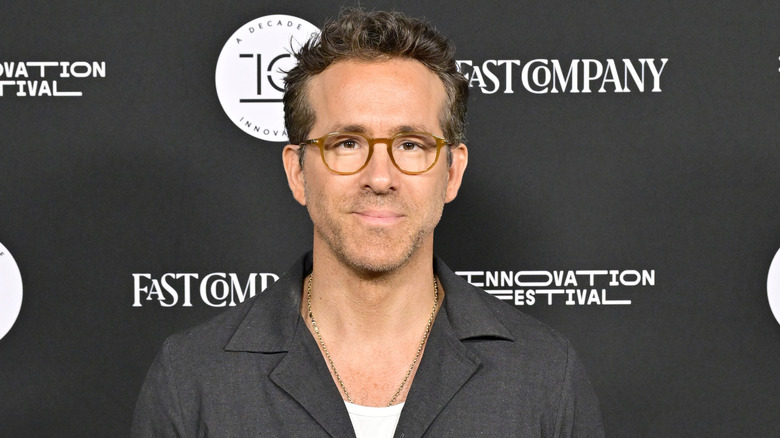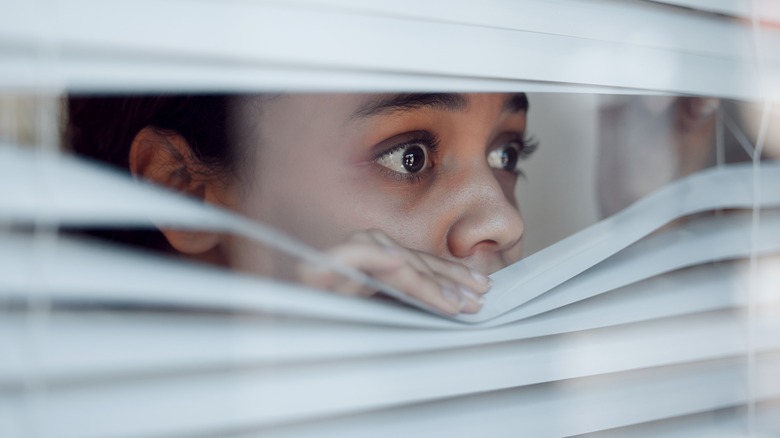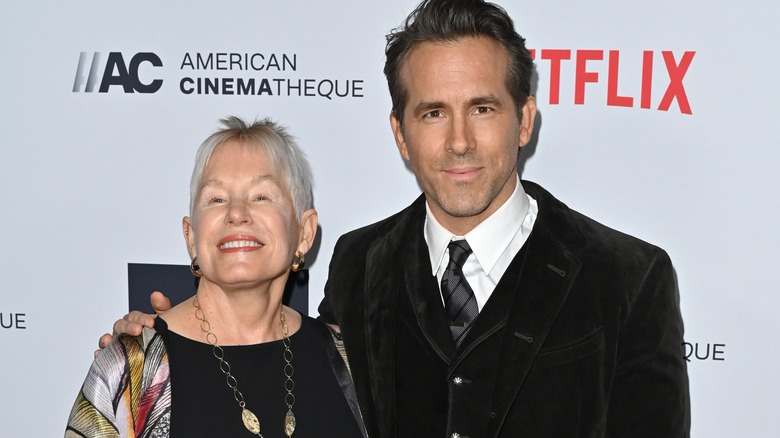The Easily Missed Parkinson's Sign Ryan Reynolds Wished He Noticed In His Dad
Ryan Reynolds learned of his father Jim's Parkinson's diagnosis when the actor was 22 years old. At the time, his parents didn't mention much about the disease, and Reynolds himself didn't understand the symptoms of Parkinson's that would later arise. This strained his relationship with his father until just before he died in 2015.
One of the Parkinson's symptoms Reynolds didn't know about was hallucinations and delusions. "At the time I just thought, 'My dad's losing his mind,'" he told People. "My father was really slipping down a rabbit hole where he was struggling to differentiate between reality and fiction."
Now Reynolds works to educate patients and caregivers about how Parkinson's progresses. According to More to Parkinson's, about half of people with Parkinson's experience hallucinations and delusions as part of the disease's progression (here are other symptoms of Parkinson's you shouldn't ignore). The people more at risk for these signs include older adults, people with more severe symptoms, and people who live longer with Parkinson's.
Types of hallucinations and delusions that are signs of Parkinson's
More to Parkinson's says that people with Parkinson's might hear, see, or feel things that aren't there. Delusions could include feeling someone is trying to cheat or steal from you, or people might believe a television character or celebrity is talking directly to you.
Reynolds's mother, Tammy, recalled a story about her husband coming home from a long trip. Jim said he had a long conversation with her in the car even though she didn't accompany him on the trip. Reynolds's father also believed his neighbor was out to get him. Believing the neighbor was hitting on his wife, Jim called the neighbor, asking him where his wife was.
More to Parkinson's advises talking to your doctor if you or a loved one are experiencing hallucinations or delusions as part of Parkinson's to develop a care plan to deal with these symptoms. It's also important to recognize how hallucinations and delusions are part of the disease's progression and to have open conversations about them. (Read the myths you should stop believing about Parkinson's.)
"I wish I knew then what I know now," Reynolds said. "I want this work to encourage conversations and destigmatize one of the toughest parts of Parkinson's. I would have loved to have had the option to help my dad see reality a little more clearly."
Parkinson's can strain the caregiver
People with Parkinson's often withdraw, causing significant emotional stress at home. Taking care of someone with Parkinson's at home requires a lot of support to deal with the motor symptoms of the disease, such as problems with walking and balance. In addition to hallucinations and delusions, non-motor symptoms of Parkinson's include depression, anxiety, and sleep disorders. Reynolds said that his father, a former police officer, was stubborn about acknowledging his struggles with the disease. He told People that although his father always attended his football games, he often didn't share much emotionally.
Reynolds acknowledged that his mother endured significant stress as the primary caregiver of his father. "We were super worried about my mom because when your world is orbiting around somebody who is experiencing this, you feel incredibly helpless, and I imagine, alone," he said in a video on More to Parkinson's.
Caregivers of people with Parkinson's can experience depression and feelings of isolation, and they are at a higher risk for chronic illness (read why spending time with friends and loved ones is important for your health). "Caregiver fatigue is very real," Reynolds told People. "It's one of probably the most unreported side effects of diseases like this."


